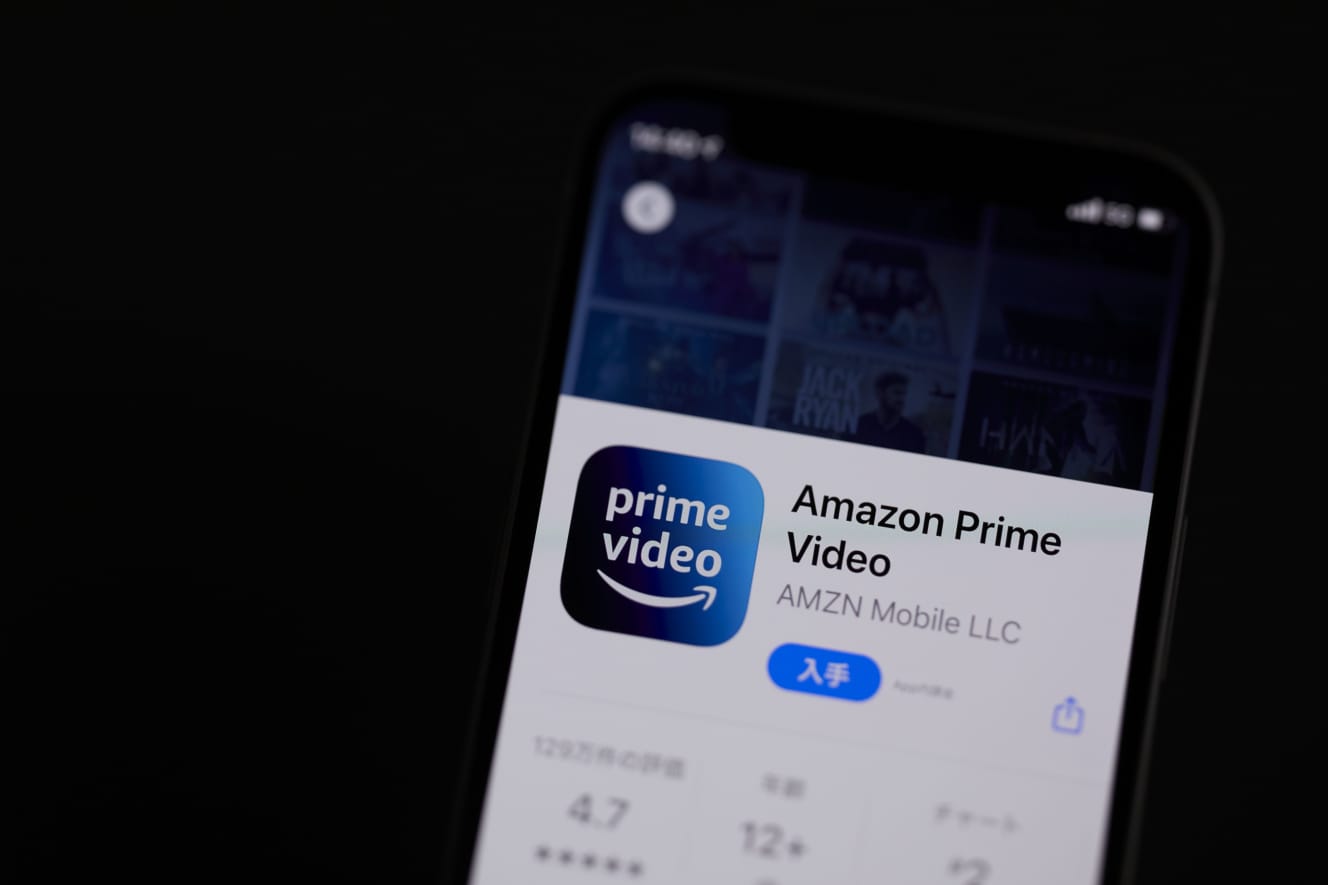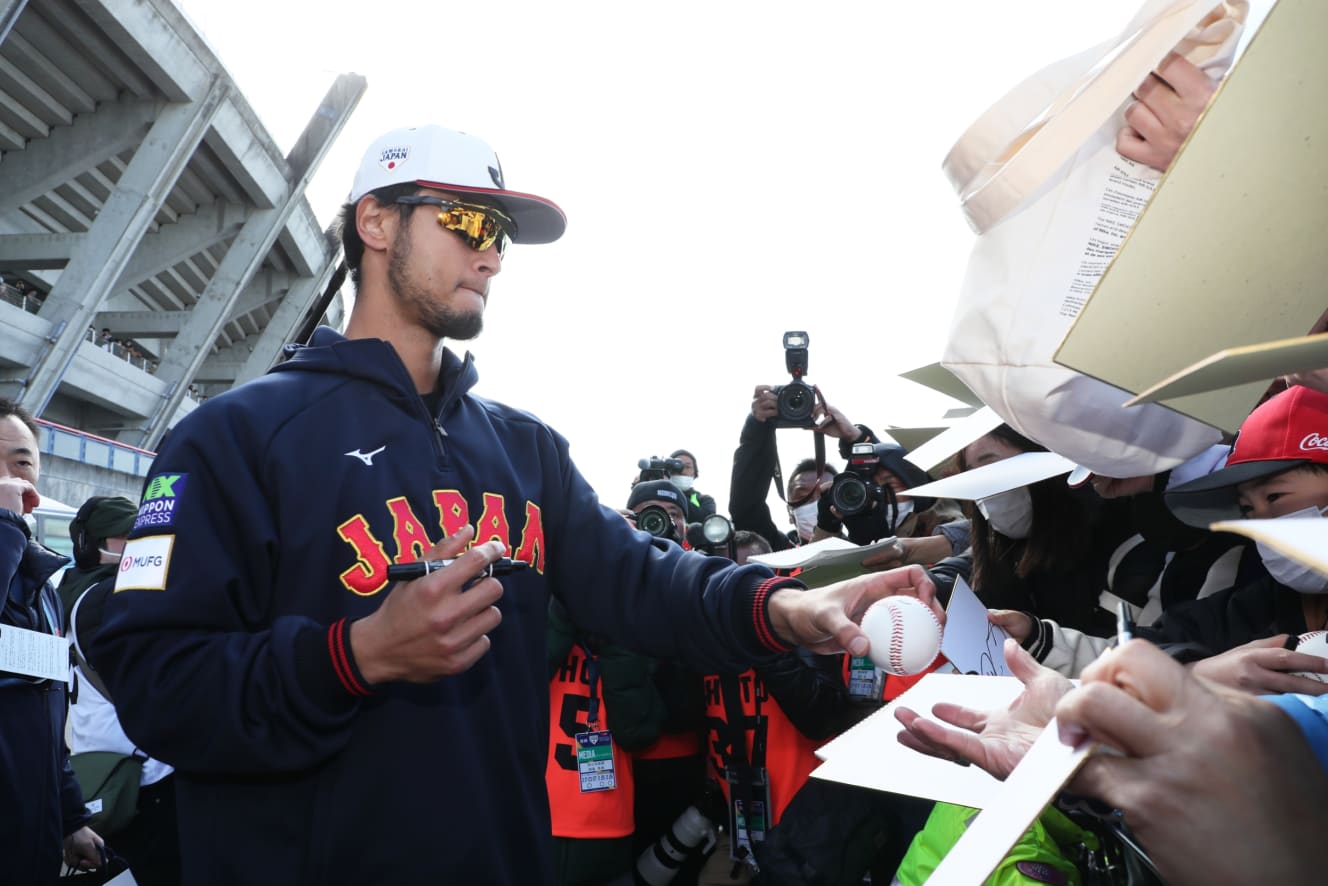Why Amazon, which distributes the WBC, is bullish on its chances of winning the World Cup.
Amazon, which operates online stores around the world, will participate in the World Baseball Classic (hereinafter referred to as “WBC”), the world’s top baseball tournament, which will start on March 9. Prime Video, a video distribution service provided and operated by Amazon as part of its membership program, will provide live streaming of all games of the Japanese national baseball team, Samurai Japan, as well as the quarterfinals, semifinals, and final. At first, it was believed that “Abema,” which gained recognition and presence by distributing all the games of the World Cup Soccer Tournament in Qatar, would exclusively distribute the WBC, but Prime Video will distribute the official WBC games. The reason for this was the great success of the live broadcast of the professional boxing match between Naoya Inoue and Nonito Donaire last June.
I wanted to enter the sports distribution business someday.”
Prime Video launched its service in Japan in September 2015. For a monthly fee of 500 yen (4,900 yen per year), the lowest price in the industry, regular members can watch more than 10,000 movies and dramas as much as they want on the streaming site, which boasts global popularity. An Amazon source revealed, “It’s not just movies and dramas.
We wanted to make sports distribution a pillar of our service in addition to movies and dramas.
The catalyst for this was professional boxer Naoya Inoue. Last June, the world bantamweight title unification match against Nonito Donaire (Philippines) was not broadcast live on terrestrial television, as had been the standard practice, but was streamed live exclusively by Prime Video.
After the fight, Inoue confidently commented, “This is a great fight that will be talked about for years to come,” (Takashi Kodama, Prime Video’s Japan Country Manager).
Two months prior to this, in April of last year, the first live broadcast of the world middleweight title unification fight between Ryota Murata (Teiken) and Gennady Golovkin (Kazakhstan) for the domestic market was made, marking a full-scale entry into the world of sports distribution. Although specific figures have not been released, the number of viewers on the first day of distribution reached a then-record high since the distribution service began in Japan after September 2015. Amazon announced that the Inoue fight further surpassed this record, ranking first in history. After the Inoue fight, there was naturally a big impact within Amazon.
The number of female viewers was high, and it certainly convinced us that sports distribution would be a sufficient pillar of our business,” said an Amazon official.
The commercials, which are not normally included in the distribution of sports games, were also included. When Amazon televised Inoue’s fight in June, the company considered the timing of commercials from the viewer’s perspective and reduced the number of commercials shown as much as possible, but still managed to generate revenue.
The feedback from viewers on social networking sites was also very positive.
The innovative staging of inviting Inoue to the airwaves for an interview after the match was also well received by viewers, and there were many positive reactions.
<Thank you for broadcasting a great match.
<I can’t believe they even showed the scorecard.
<The picture quality is better than TV, which is great. I hope you will continue to broadcast boxing.
Inoue received over 200 million yen in fight money for this bout. The highest amount of fight money was 171 million yen that Tatsuyoshi received immediately after the 1994 WBC World Bantamweight Championship unification fight (Yasuei Yakushiji vs. Joichiro Tatsuyoshi). A portion of the broadcasting rights paid by broadcasters is being used as fight money, and “the broadcasting rights fees we can compete with are no longer enough,” said a person in charge of boxing at a terrestrial TV station.

It is a sign of the times that the WBC is now being distributed by Amazon.”
This year’s WBC has made it possible for Samurai Japan to call up major league players such as Shohei Otani and Yu Darvish, making it the “strongest lineup in the history of the WBC. The excitement is expected to be at an all-time high. A sports manager at a major agency said, “Terrestrial TV broadcasts will be aired on TV.
The terrestrial TV broadcasting will be done by TV Asahi and TBS. The specific amount cannot be disclosed due to confidentiality obligations, but the broadcasting rights fee is said to be lower than that for the World Cup (about 500 million yen per game).
The same person asked, “Do you know why it is cheaper than the World Cup? The same person asked him a question in the opposite direction, and then continued, “In the world of advertising agencies, the air rights fee was lower than that of the World Cup last year.
In the world of advertising agencies, after the World Cup in Qatar at the end of last year, it was decided that the number of viewers in Japan would be greater for the World Cup than for the WBC. This is because the World Cup can be seen all over the world, including Europe, South America, and Africa, while the WBC is mainly limited to Japan and the United States. The WBC is limited mainly to Japan and the United States. It is believed that it will be difficult for the WBC to reach the number of viewers that would be expected if the World Cup were televised live.
So why did Amazon dare to acquire the WBC broadcast rights in such a situation?
It is because Amazon has an overwhelming advantage in terms of the number of customers, with “approximately 200 million Amazon Prime members worldwide.
Abema spent a total of 20 billion yen (estimated) for the World Cup Soccer Tournament in Qatar, and it provided free live broadcasts of all 64 matches. In the financial results announced in January this year, the company posted an operating loss of 12.4 billion yen for the first quarter (October to December) of the fiscal year ending September 30, 2023, but recognition of the event increased rapidly, and the company’s market capitalization increased by 40 billion yen at one stroke. This is the largest number of viewers ever recorded during the World Cup. This is more than the 33.77 million viewers averaged for the second part of NHK’s Kohaku Uta Gassen broadcast in December last year (according to Video Research).
With the participation of stars such as Otani and Darvish, a large number of viewers can be expected for sure. Amazon’s decision to distribute sports broadcasts, which until now have been the sole domain of TV, is a sign of the times,” said a sports representative from a major agency.
Amazon’s internal staff is feeling a positive response even before the broadcast.
It is true that there are many rivals in sports distribution, such as Abema and DAZN, but we have no choice but to win. We do more than just distribution,” said an Amazon representative.
Abema, which broadcast the World Cup soccer games, offered completely free distribution. Amazon charges 500 yen per month (4,900 yen per year). The company considers its “strength” to be its wide range of services, including delivery benefits and music distribution, in addition to program distribution.
Another source, who has been in charge of broadcasting rights fees for sporting events at an advertising agency for many years, said, “Amazon’s distribution of the WBC is a big advantage for us.
Amazon’s distribution of the WBC will change the future of sports broadcasting in many ways at once. Long ago, TV was no longer the sole powerhouse. And the era of elimination of distribution sites is coming.
This trend has already begun in Europe. In January this year, it was announced that Amazon and DAZN had formed a distribution partnership, and in Spain and Germany, DAZN is now available on Prime Video. Specific details of the service in Japan are expected to be announced by the end of the year.
Japan’s world-class Naoya Inoue’s fists have pushed Amazon to enter the major sport of baseball in Japan. It is only a matter of time before Amazon, along with Abema, which quickly increased its presence during the World Cup soccer tournament, becomes a leader in Japanese sports broadcasting.

